
Main Page
Alphabetical Menu
Chronological Menu
|
Alamar 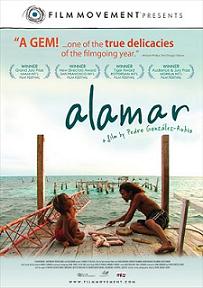 Natan Machado Palombini, a young boy, has been living alone in Italy with his mother, Roberta Palombini, ever since she and his father, Jorge Machado, had divorced. Jorge wanted to continue living a nature-oriented lifestyle away from most civilization, but Roberta was unwilling to because she preferred to stay put and settle down while taking care of Natan. Roberta drops Natan off with Jorge for a summer vacation with him on a fishing boat off the coast of the Banco Chinchorro reef in Mexico. On the boat, they join Jorge’s father figure, Matraca (Néstor Marín), whose very tanned skin reminds you of how frequently he spends time out in the sun with Jorge. Writer/director Pedro González-Rubio combines documentary and fiction in such a way that blurs the line between the two. He films Natan, Jorge and Matraca going about their daily summer activities as they go fishing, catch lobsters, eat homecooked meals, sit out to talk at night in a waterside shack or bond with a white buff-backed heron which they name Blanquita. It’s quite moving to watch as Jorge tries to teach Natan how to allow Blanquita to walk onto his arm, and the same can be said for the scene when they go searching for Blanquita when she goes missing. The picturesque scenery together with an exquisite cinematography captures the tranquil beauty and purity of nature, but most importantly, it emphasizes the symbiotic, fundamental connection between humans and nature. Some of the shots, such as one that involves terrific underground camerawork as Jorge and Natan swim underwater in the clear blue Caribbean Sea, provide lots of eye candy that will keep you immersed and wishing that you can hop the next plane to Banco Chinchorro. Alamar, which translates as “to the sea”, seems very simple and easy-to-swallow, but beneath its surface lurks complexity as well as an abundance of warmth that will quietly uplift you by the time the film ends. At a running time of only 1 hour and 13 minutes, it’s a picturesque travelogue and an enchanting ode to mankind’s symbiotic relationship with nature. 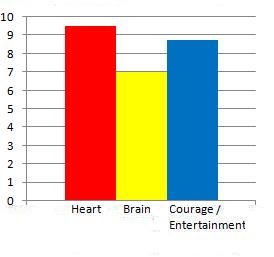 The Sorcerer's Apprentice 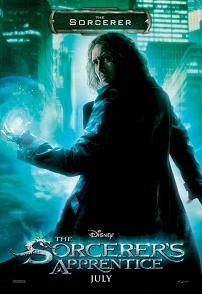 Balthazar (Nicolas Cage), a sorcerer, needs the help of Dave Stutler (Jay Baruchel), a geeky college student obsessed with physical, so that he can defeat a rival sorcerer, Horvath (Alfred Molina), before he destroys the world with his magical powers. Horvath and Balthazar have both been fighting over their love, Veronica (Monica Bellucci). Back in 740 AD, Balthazar used his powers to put Horvath and Veronica’s spirits inside an object that resembles Russian doll. Many years later, 10-year-old Dave (Jake Cherry) bumps into Balthazar’s hidden abode and accidentally knocks over the object thereby releasing the spirits. 10 years later, Balthazar teaches him how to become his apprentice by teaching him how to use sorcery with a special magic ring. In a very cheesy and contrived subplot, Dave begins a romance with Becky Barnes (Teresa Palmer), a beautiful blond girl from his school whom he has a crush on. Will Dave’s new job as Balthazar’s apprentice threaten his relationship with Becky? What might happen if Becky were to find out that Balthazar isn’t actually Dave’s uncle like he told her? What if she were to get caught up in the battles between Dave, Horvath and Horvath’s assistant, Drake (Toby Kebbell)? Not surprisingly, a total of three writers, Matt Lopez, Doug Miro and Carlo Bernard, wrote the silly screenplay that combines action, romance, fantasy, drama and comedy all rolled into one giant, headache-inducing adventure that should have been a lot more fun. Jay Baruchel at least has more charisma as a lead than Shia Labeouf does, but, he doesn’t have much to sink his teeth into here because of the vapid screenplay that piles on so much implausibility and unlikely coincidences even within the film’s own internal logic that you’ll find yourself either rolling your eyes and shaking your head in disbelief or remaining apathetic to any of the events that transpire to the bland Dave. A scene with animate mops pays homage to the classic Fantasia. Nicholas Cage gives an amusing performance, just as expected, and adds a modicum of panache as does Alfred Molina as Horvath. Each character seems cardboard-like and cartoonish, though. Director Jon Turteltaub seems to care more about bombarding you with action scenes and trying to impress you with nifty visual effects while, unfortunately, the hope for imagination when it comes to the story itself takes the backburner. At a running time of 1 hour and 51 minutes, The Sorcerer’s Apprentice is a brain-dead blockbuster high on action sequences, CGI and silliness, but low on fun, thrills and imagination. Where’s the magic when you really need it the most? 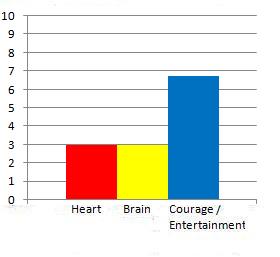 blog comments powered by Disqus To Age or Not to Age 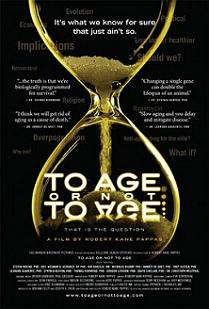 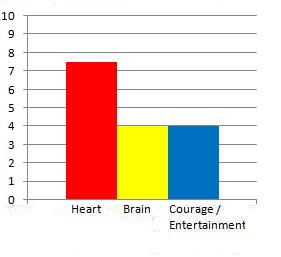 Main Page Alphabetical Menu Chronological Menu ______________________________________________________ |
The NYC Movie Guru
themovieguru101@yahoo.com
Privacy Policy